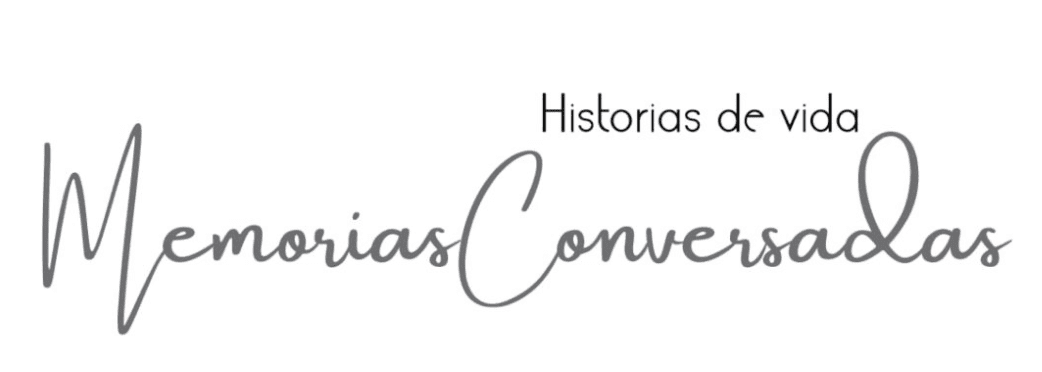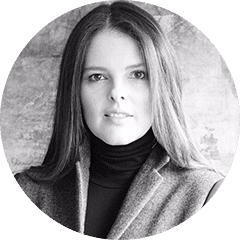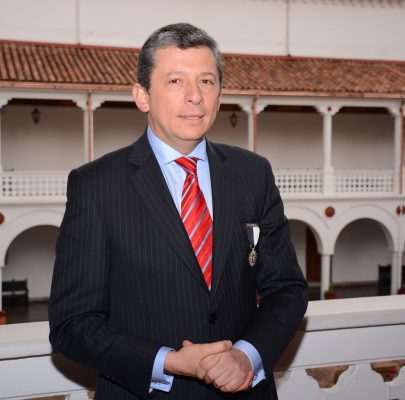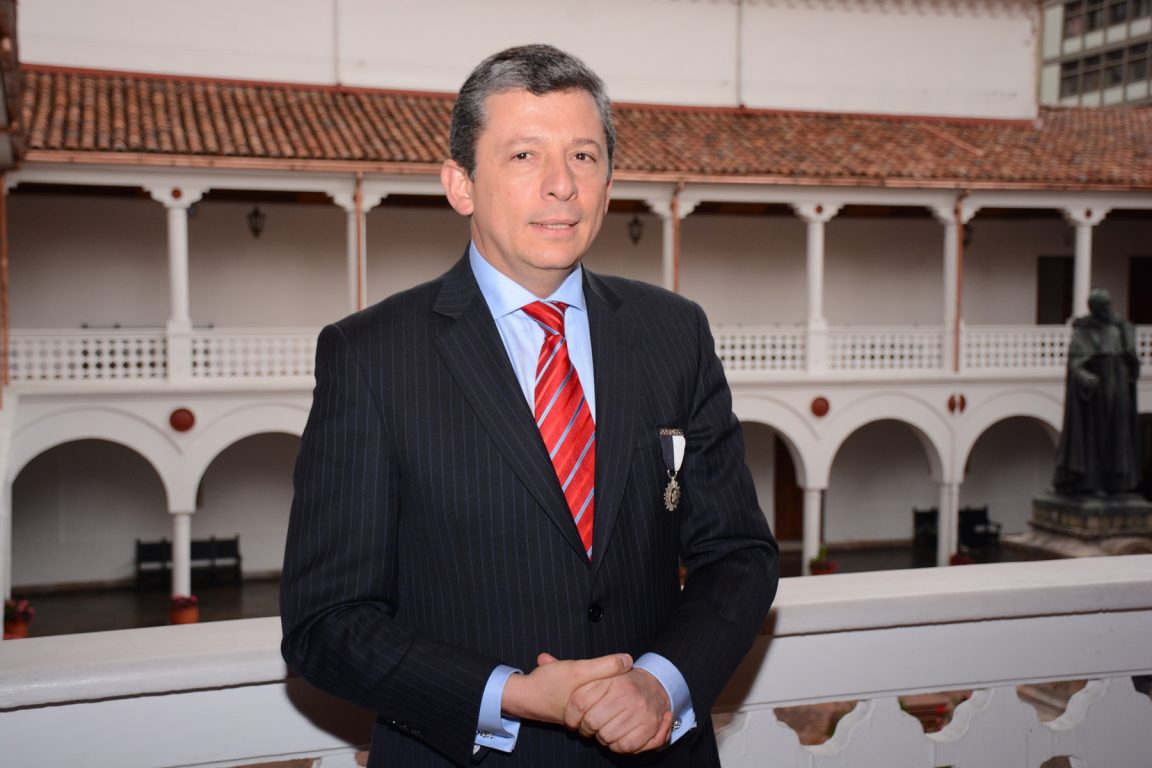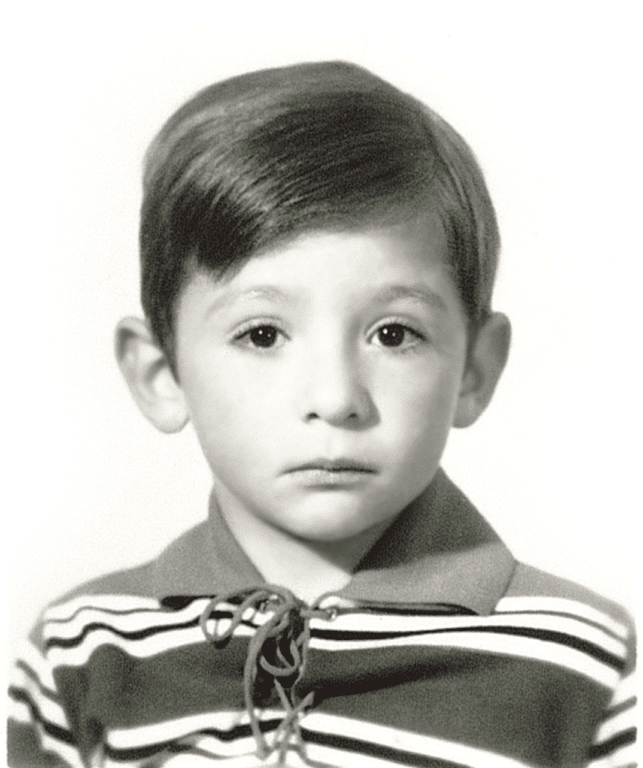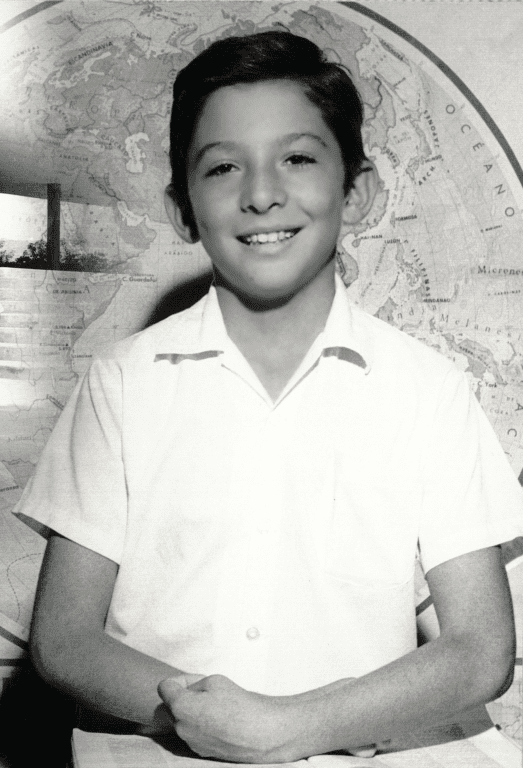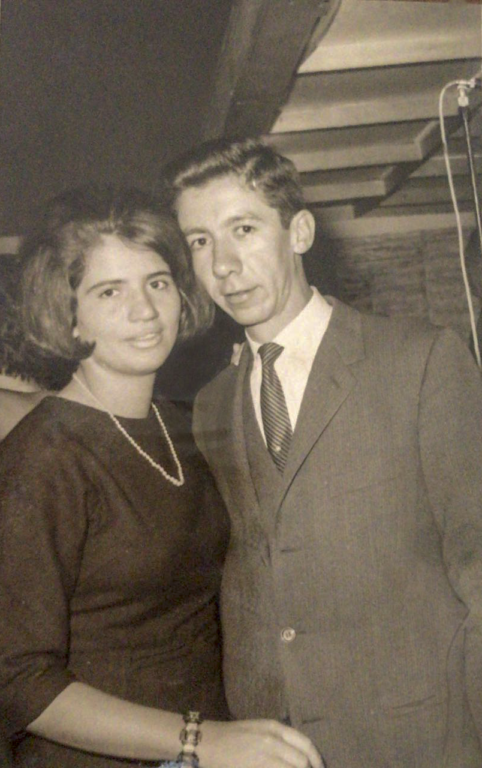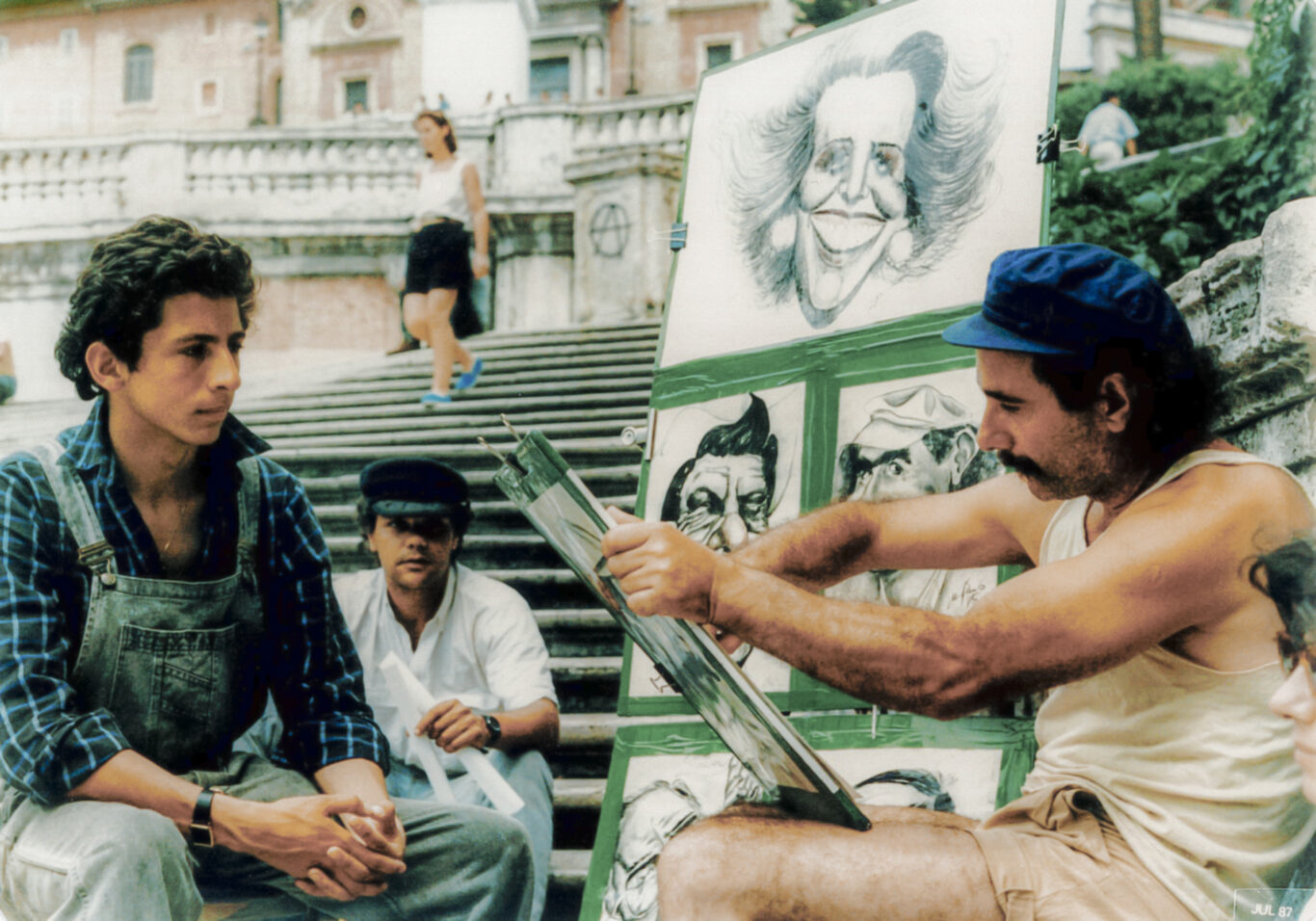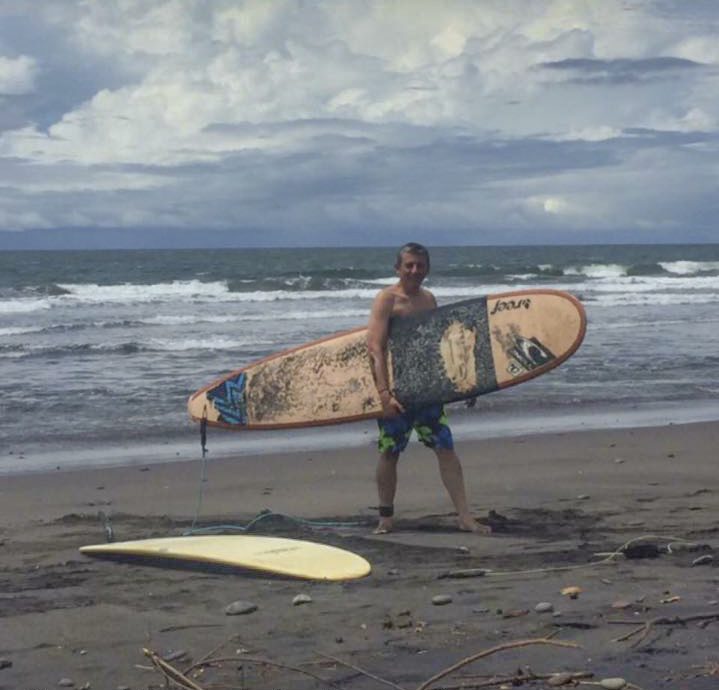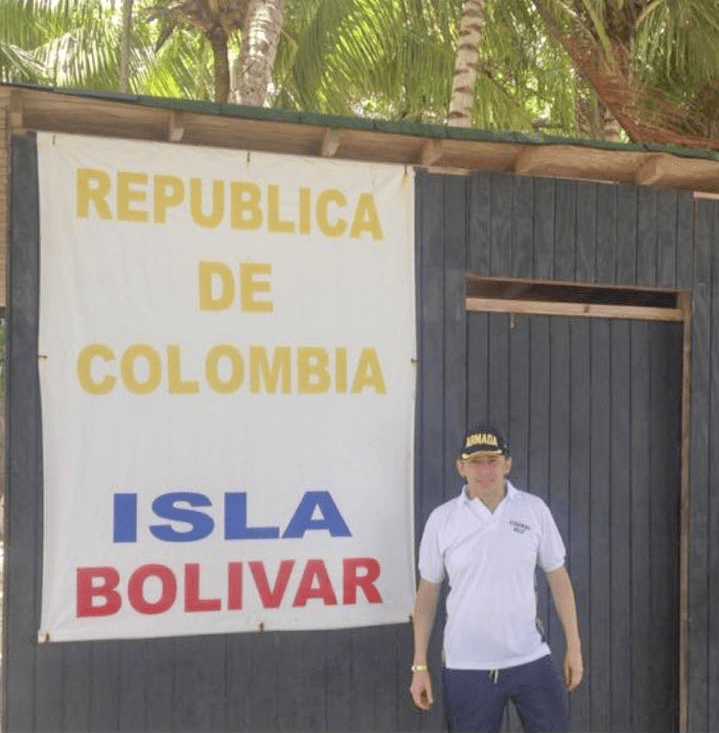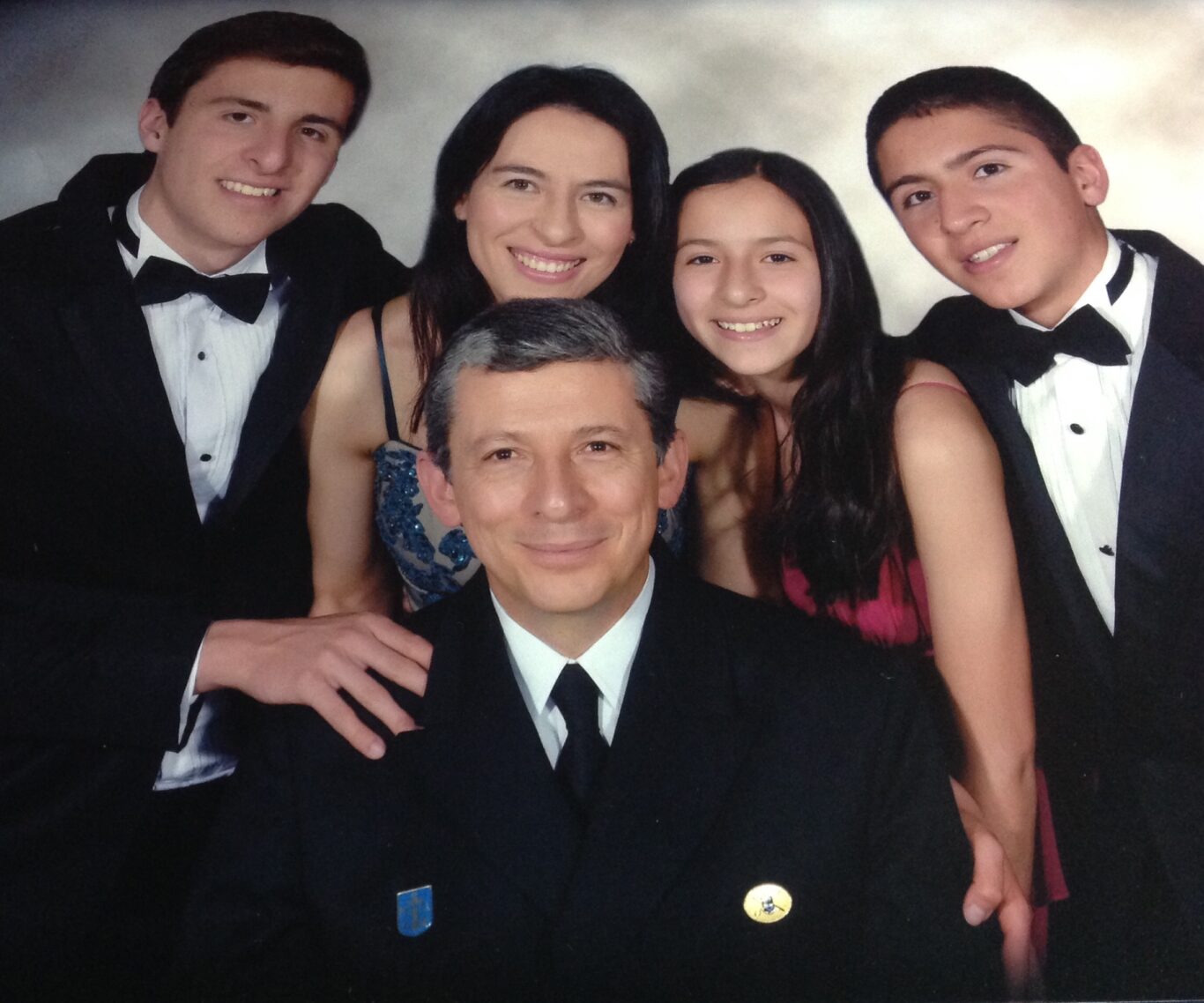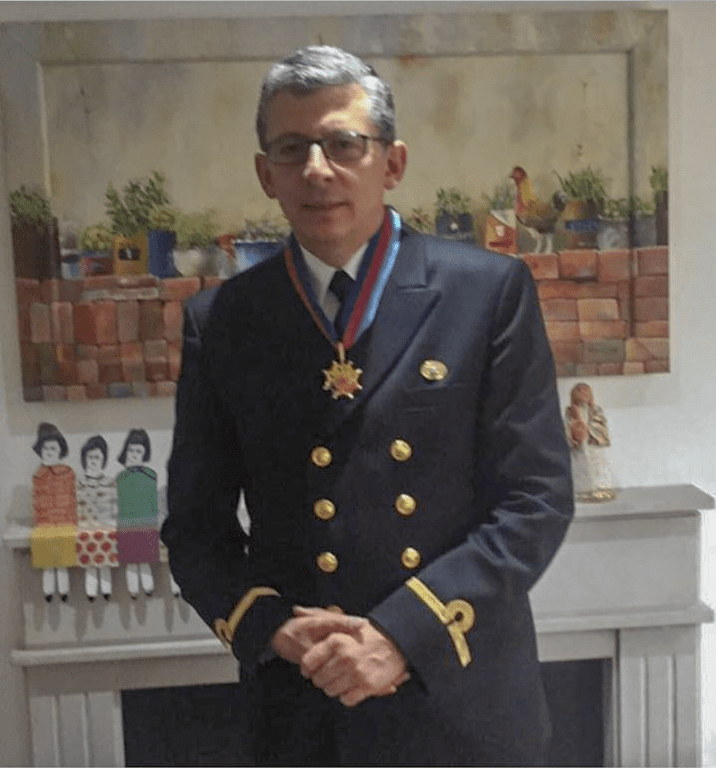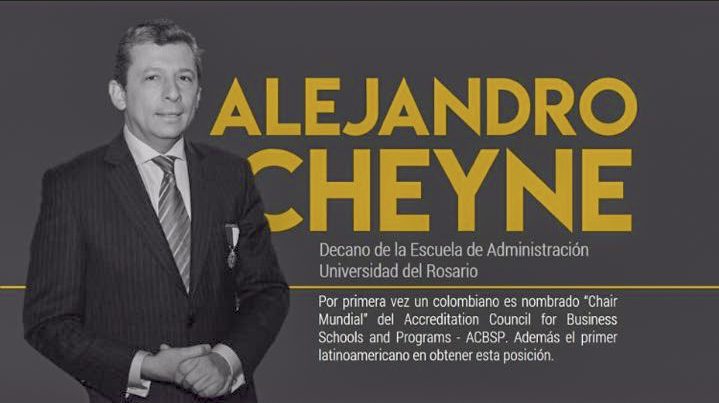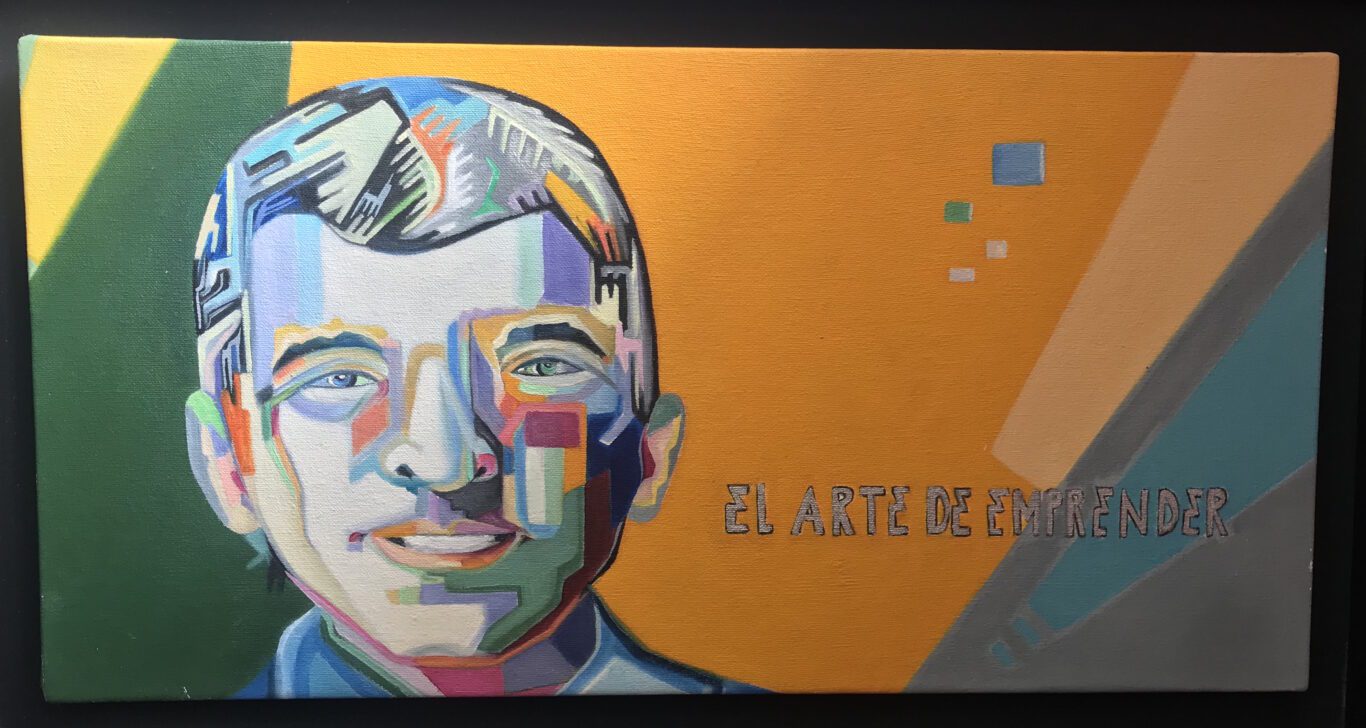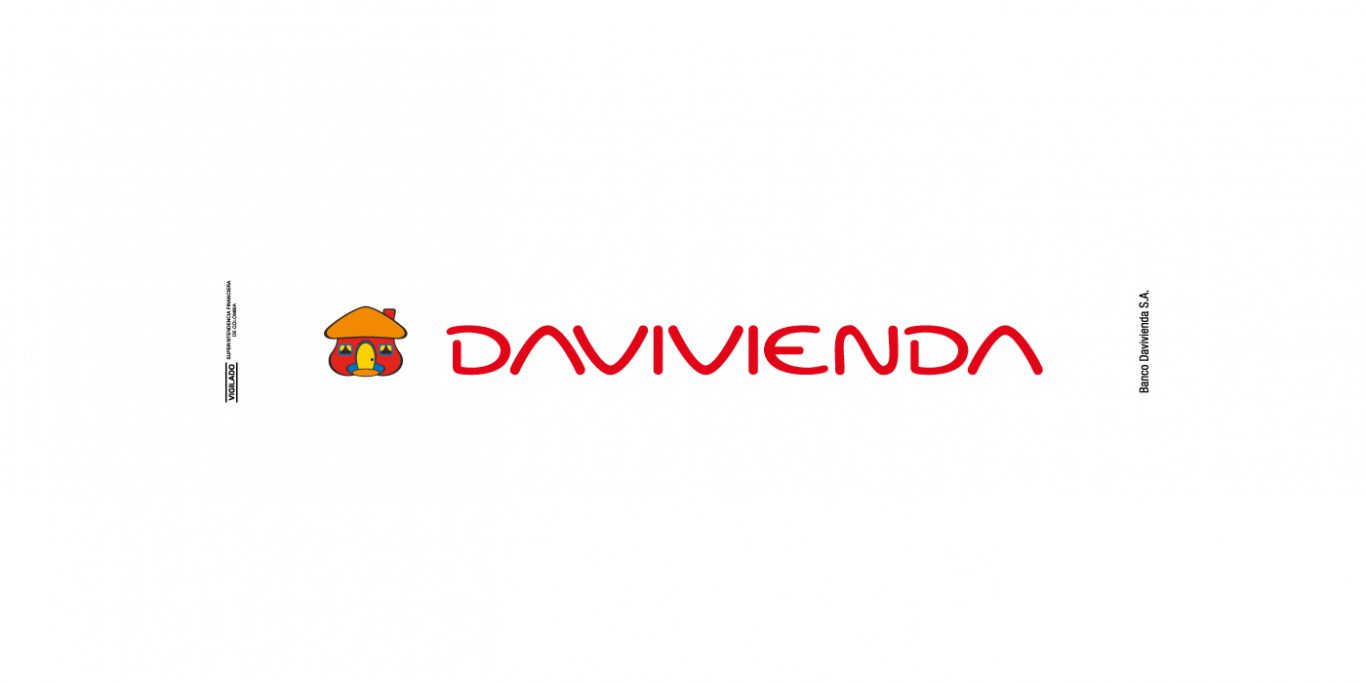ALEJANDRO CHEYNE
Las Memorias conversadas® son historias de vida escritas en primera persona por Isa López Giraldo
Tell me about your origins….
My father has always been a worker person that is why I learned from him the meaning of work with a vocation of service. Undoubtedly this vocation contributes not only to the creation of a better world, but also allows the person to improve each day more. He studied part of his engineering program in the United States and worked in a multinational that was really interesting because he had the chance to live in different cities building factories. This job gave us the opportunity to develop very important skills as family; one of the most important is the global thinking which is the capability to see what it is happening around the world and apply it in the local place. My family has always been committed with the country for the same reason we looked for more opportunities to Colombia.
My mom is an artist that dedicated her life to raise my sister Martha and me; in a parallel way she was able to develop her vocation. Since I was a kid I was delighted to see how she painted, how she started and finished her paintings; I used to see the pleasure she had in her works. From that experience I learned that art can help in several ways, but there are two fundamental things: art helps to discover your own self, but there is something more interesting and it is that art helps to discover the world around you. It is true that some people think they know themselves very well, but art allows them to go further. You could be in the same place all the time but it does not necessary mean that you know where you are and it is because people do not have the capacity to appreciate the world. Those are two characteristics of the art that I learned from my mother.
- What does the Universidad del Rosario means in your life?
The Universidad del Rosario has been very generous with me, I did my undergraduate and graduate program there. It allowed me also to meet my wife that, as an anecdote, she was my student in the program of business administration. Also the University has given me the honor to be a teacher and to work in different roles of leadership during an important time of my life.
I’m so proud to be a Rosarista of full time, with my wife Olga we would like that our kids Tomas, Daniel and Ana, can be too and that could take advantage of a scenario where you can receive a personalized education with integrity.
- What do you mean with personalized?
Let me get that point clear. It is when the professor recognizes the student, as he or she is, a person. You as a student recognize your classmates, as they are persons, it means recognize them for their academic formation, intellectual, spiritual, physical, for their family circle, in general in all dimensions. If you have this capability, you are in a personalized process. In some academic scenarios there is a huge distance between the professor and students, and also with other professors, which can make the learning process very difficult. This difference is very important to me, at the point that I apply it with my work team that is very young, but about all I look that they are good people. That is a fundamental rule in my life and the result has always been extraordinary.
- What else did you study?
After that, I did a course of international senior management to get to know well the business sector. Then I did the master’s degree in pedagogy; later on I did my doctoral degree on pedagogy in Mexico. That is me, a person in love with education and everything I do I try to do it the most pedagogically possible, that is why when I showed you a few minutes ago that I teach entrepreneurship, I did it using art as a pedagogy, because I have that focus since I was a kid thanks to my mom. I work to show that everything that can be done in the School of Business or in the different scenarios where I have been, always follow that guideline.
- How was the experience of teaching for the first time?
Exciting! Let me tell you the story. At that time I was unhappy with a teacher so I went to the Dean’s Office of the time and I said:
This professor is not good for these reasons….
The Dean, Miguel Gómez Martínez, listened carefully to me and said:
We will fire the professor because you are right, your arguments are enough to ask the professor to not continue with us but I just have an additional condition: you will be the new professor.
I was really young I was 23 years old so I said:
I will assume it with all the responsibility
For the next semester I was the professor of the class. The following weeks were really long and hard because I dedicated a lot of time studying and getting all the information I needed. The name of the class was “Economy History”. The best of all is that I did it so good that with the Dean’s help I participated in an international competition and I won! I went to Spain for a while to learn how to teach this class and I was in the providence of Extremadura. This happened the first semester when I was formally teaching.
- What other positions have you occupied?
Look I have always been very loyal to my vocation. In one way or other I have had different positions of leadership in the education sector. Today I’m the Dean of the School of Business at Universidad del Rosario. I have also worked as Director of the business advisory unit, Construction manager of the university in the Claustro, Dean´s Assistance and vice-dean in another university and President for over 10 years at Uniempresarial, the University of the Chamber of Commerce of Bogotá when I was 36 years. I have worked in different roles from being a professor, which is what I love, to the ones I mentioned before.
- We walked all over the School of Business where everything turns around entrepreneurship. You have dedicated 100% of your life to the academy. How to reconcile the ‘real world’ with the exclusive vision of the academy?
During the time that I was President of Uniempresarial, affiliate member of the Chamber of Commerce of Bogotá with a little bit more of 700.000 companies subscribed, I get to know very well the business sector thanks to the academy. After that I could understand the long-term productive projects of Bogotá and the region.
This experience gave me a big picture that allowed me to love entrepreneurship, main topic of my doctoral thesis from a solidary focus. Since I finished my doctoral degree I think all the time in different pedagogical strategies to motivate young people to consider the entrepreneurship as a project of life through art. Luckily, I can tell you that the Chamber of Commerce of Bogota not only promotes entrepreneurship but also promotes art through annual exhibitions as ARTBO or mobile exhibitions.
This convergence of entrepreneurship, my doctorate in pedagogy and my love for the art represent the hallmark of my current life.
- Is it possible to describe with words the vision of the world when you have art in your life?
Long time ago people used to think that art was for few people that it was only for people that had studied or had a direct contact with it. What it has been showed is that art is for everybody and it makes that people could have a comprehensive perception of what the world is, in the case of the business sector that it is not all about the money or business. I mean art gives perception.
- Talking about art is to talk about values?
Maybe the value that I believe the most is the solidarity and this is an art in itself. There are a lot of definitions of solidarity but maybe the most famous is to give more than it corresponds and not only to your family, friends or people that surrounded you, but also to the society. That is the key to be successful.
- Let’s continue with your live experiences…
I started 10 years ago participating in an international accredited firm called ACBSP, just to work for the global education and to facilitate to the universities the compliance of high international quality standards. I have had the chance and honor to work as a Secretary, Vice-president and President for the Latin-American chapter and on June 2018 I assume the position of Global Chair of this Global firm, being the first Latin-American person that occupy this position since its foundation 30 years ago.
I have met wonderful people that have taught me a lot about education. After meeting them I have confirmed that education is the key to change the society. In Latinamerica Daniel and Wilfredo; in USA Dewayne and Anthony; in Canada the current Chair Mary; and the CEO and leader of ACBSP Jeffrey Alderman. All of them confirm once more our vocation for education.
- How did you make it?
It has been the result of working without expecting anything back, helping with work. When you have a good pace of work the doors open by itself.
- How do you feel? I see a smile in your eyes
Yes, it is a very interesting experience. God has been very generous with me because all what I have wanted I have had it. The global thinking, working in a university or in a business sector environment and promoting entrepreneurship have allowed me to have all the resources to support my family.
- To obtain these goals there’s always a huge effort behind all, but there’s is a softness and warmness in the way you talk, how do you challenge yourself?
There is something that Picasso says: “Inspiration exists, but it has to find you working”.
Normally people think the opposite. They start working when they are inspired but they should start working in a good pace so that way all the opportunities will come in several ways, just because you are doing it with effort and vocation.
The way I do it is to wake up at half past four in the morning; I go to sleep around half past eleven night. I arrive early morning in the university; I do exercise an hour and a half with my kids. I think it is very important the spiritual life so I go to church when I can. I like studying art so I spend a lot of time doing it. Of course I would live to spend more time with my wife and my kids.
- Do you paint?
I’m very bad at painting that’s my frustration. In my case I understood that I did not have a good brushstroke and since I do not have it I understood that I can replace it with another type of brushstroke and mine is the pedagogy. I can assure you that, with what we do here, we leave a mark in the students and people and we make of them a better human being.
- When you finish something do you celebrate it and then give yourself some reward for it?
I appreciate the generous awards that I have receive like the Military Medal for Distinguished Services of the MMFF, Executive of the year of the Junior Chamber, Colegial de Numero of Universidad del Rosario, best professor in different universities, and more that fill me with enthusiasm to serve even more from my vocation.
Nevertheless, I would like to share with you my biggest celebration. You have no idea the satisfaction when you finish a course and the students say:
— Thank you!
Thank you for the knowledge that you provide, without doubt, but thank you again for your teaching. Sometimes I have been applauded and my immediate reaction is tears on my eyes … That gratitude fills me up every day after 25 years that I have been a professor.
- Which goal have you obtained, one where you had you been working on and you haven’t got it?
A lot, however I have faith that in the future with a little bit more of effort I would make it. As example I could share with you my desire to study a postdoctoral degree in pedagogy activities of entrepreneurship, but to do it I need time to reflect and make the ideas stronger. Now it is not the right moment but surely I will have the time to do it in a university outside of Colombia to be able to compare the cultures of entrepreneurship in Latin America. Additionally, I would like to do the postdoctoral degree with extra time. When I did the doctoral process en Universidad UPAEP in Mexico, during four years, I was the President of Uniempresarial, with monthly travels to Puebla so I could not have the time for some rest or also enjoy the good things that were happening in my life.
Your question makes me think about my biggest wish. The answer without a doubt is to be able to compensate the sacrifices that my parents, my wife and my children have made for their unconditional support for my vocation, often with pedagogical strategies “out of the box”. Without my family, it would have been impossible to keep the focus in those difficult moments that I have had.
- What do you enjoy the most in your life?
What I enjoy the most is the little things and absolutely everything. I enjoy my family, to see my wife and my kids happy. I enjoy the university as a learning scenario and it is wonderful to see the face of satisfaction when a student understands a challenge. That makes me happy and it gives me wellness.
- We may say that the condition of every entrepreneur is the frustration. How to deal with it?
There are some dreams that don’t come true in the way or time we would like to. It used to shock me! Nevertheless, with the time I have learned that each failure is an opportunity of learning. When you look with this perspective you take it easy and you immediately start again but in a different way and with the satisfaction of the work done.
- How many times you have to get up and why not stop recognizing that you could be on the wrong road?
The message is especially for young people, to invite them to get up without caring how many times they fall or when they may have had a problem and they have not been able to face it in the right way. But there is something that I admire the most and that is the capability of getting up to the ovation of the people.
To explain it better, it is extremely dangerous when everything goes good for you and people applaud you and recognize you and you believe that. In that situation you really need to go back to the basics and have the capability to land off in your fragile condition of human being. I think that is the risk that many leaders do not realize what is happening with them so they could not understand that those triumphs are ephemeral, with applauses and recognitions. It is more than that.
- What kind of leadership do you apply?
There are many styles of leadership. When you decide to dedicate your life to education, there is one that can take you always on top and that is the leadership of service.
- What is it to serve?
It is to give without limits for the permanent search of the common benefit. If you have clear the service to the common benefit, the view gets clear. If you look for working for the individual perspective, all the roads of your life may get close because in the long term it is not a good investment and it is not sustainable.
- There is a big motivation in you. What message would you send to the people that have not found a motivation on life?
I would say that it is important to discover your vocation and as I tell my kids you need time to do it, even if it takes long. When you find it you need to be loyal to it, because there are many temptations to quit. If you are loyal with what you do, life gives you rewards. But if you start as a vane, to go where the wind wants to take you or where people want to take you, your life goes without making your project.
- Tell me about the most critical moment you have had to face in your life.
The most critical moment was very personal. After a time of being married my wife got pregnant and we lost that child. (Silence)
Understand that situation is not easy. You can finally make it when you try to understand the purpose of God in your life and which are the challenges he may want you to face. It was a critical moment and additionally I was very young so I thought that I can do everything in the world, and then you realized you couldn’t do anything.
Today I thank God for my three kids Tomas, Daniel and Ana. I certainly appreciate the value of life and I support initiatives that defend it.
- Are you always reviewing or evaluating yourself?
The self-assessment process is permanent and allows you to adjust the course of your life but always building on the built. I do not believe in the revolution but I believe in the renovation. Revolution is when you finish with everything that exists and renovation is building on something that already exists. Thanks to innovation people have the ability to always renew themselves at the service of others.
- What is the emptiness?
I associate the emptiness with a people’s superficiality in which they can be guided by fashion, probably for the amount of information that could not be processed or analyzed. It is what some authors call the hyper modernity to go in the winning wave but sometimes they break and people are left with zero.
- Have you ever felt limited?
Very much, there are many dreams to accomplish and sometimes you feel some kind of restrictions like money, time, health and many more that can put in risk your projects. The exciting thing in life is precisely to achieve the optimum between your dream and your limitations, that is, to do what you can to find your dream with what you have.
The picture “The Card Players” by Cézanne fascinates me. It shows some people playing cards, with the intention of winning of course. I use this paint in my entrepreneurship classes to remind young people that the winner is not the one who gets the best cards and the loser is not the one who gets the bad cards, on the contrary, the winner is the one who can, with all the passion and strategy, take advantage of the cards they have.
God has given me some talents and with those cards I have played my life.
- What is plenitude?
That is a good question. Due to our mortality I guess it is the satisfaction of the duty fulfilled and the good use of the talents received at the service of others.
- What should be said tomorrow of Alejandro Cheyne?
I do not know, I do not know…
The art of entrepreneurship always at the service of others.
How nice it would be!!
